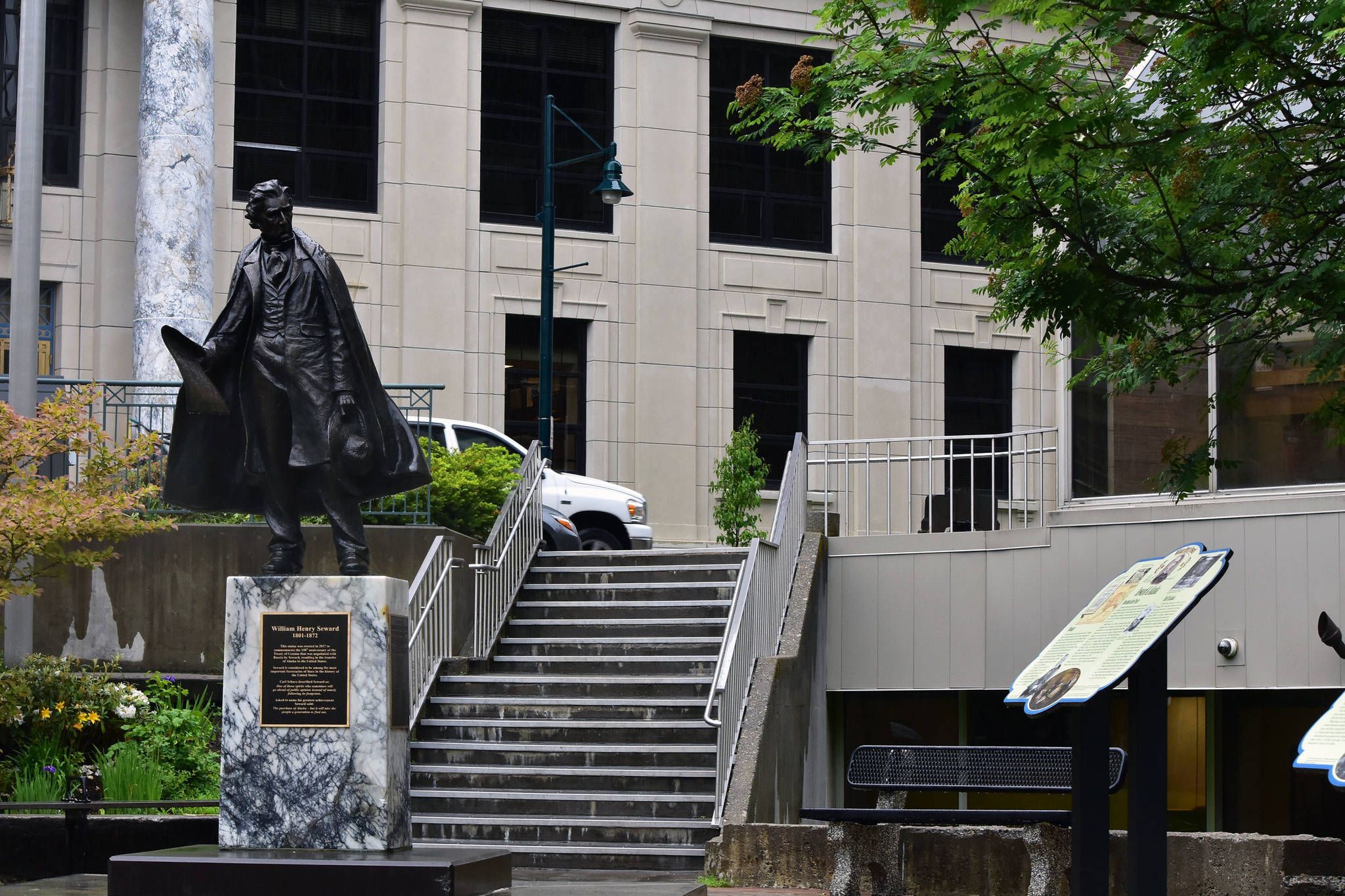Peter Segall’s article in the Juneau Empire, takes us for an all too familiar trip through Political Correctness Gone Wild.
[Hundreds call for statue’s removal]
These journeys are becoming more like bad remade movies with the same tired theme, eliminate history and it “never happened.” In this case, Juneau resident Jennifer LaRoe tries to convince the people of Alaska, its government and the rest of this country’s proponents of “Political Correctness” that Seward’s monument should be removed because of her uneducated and misinformed assumption that he was a bad man.
In her mind, he was bad because he was responsible for the purchase of Alaska from the Russians and the “disenfranchisement of Indigenous peoples.” It’s interesting that she ignores the history of treatment of Indigenous peoples of Russia before, during and after that sale, and proposed the removal of the Seward statue as a result of that ignorance.
I won’t even go into the proposed removal of the Captain Cook Monument in Anchorage because he was a British explorer during the age of discovery.
Here’s a little short excerpt on Russian history for people, incase they don’t have the time to research “facts” or just can’t read: In Northern Russia, 90% of the Kamchadals and half of the Vogules were killed from the 18th to 19th centuries and the rapid genocide of the Indigenous population led to entire ethnic groups being entirely wiped out, with around 12 exterminated groups which could be named by Nikolai Iadrintsev as of 1882.
Much of the slaughter was brought on by the fur trade. In addition, the Aleuts in the Aleutians in Alaska were subjected to genocide and slavery for the first 20 years of Russian rule, with the Aleut women and children captured and Aleut men slaughtered. In Siberia, the natives were subjected to violence of almost genocidal proportions by the Russian colonization. The colonizers used slaughter, alcoholism and disease to bring the Natives under their control, some nomadic groups essentially disappeared, and much of the evidence of their obliteration has itself been destroyed, with only a few artifacts documenting their presence remaining in Russian museums and collections.
This treatment continued through the Communist era of the 20th century. The treatment of the Indigenous peoples of Alaska was not anywhere close to the treatment by the Russians of their own people and was definitely not Seward’s fault.
It should also be noted that none of the existing Indigenous groups in Russia today own Fortune 500 companies with a combined ownership of 44 million acres like they do in Alaska. After looking at the facts, and not some “politically correct” hysteria, I would hope that the state of Alaska would continue to memorialize Seward by maintaining his statue, because without that purchase, this state wouldn’t exist.
• Keith Phillips is a Kenai resident.

